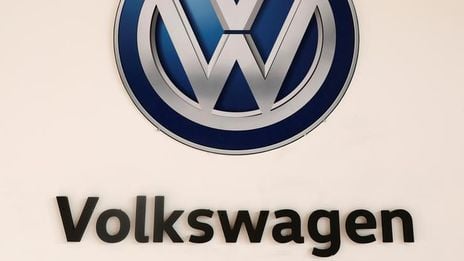Investor jitters about the economy at home and abroad helped send Brazil's currency to its weakest closing level in three years on Monday. But Finance Minister Guido Mantega said the measures should help revive an economy that has been stagnant since mid-2011, while also providing protection from the debt crisis in the euro zone.
"If the crisis gets worse, if they don't fix the problems in Greece, it will be certainly difficult for us to reach a 4.5 percent growth rate this year," Mantega told reporters.
"But Brazil is in a position to react to the crisis and keep growing - I wouldn't say at 4.5 percent, but to grow more than the 2.7 percent we had last year."
The measures included a reduction until August 31 in the IPI industrial tax on some automobiles as well as the IOF tax on financial transactions for individual borrowers. The central bank also agreed to free up some 18 billion reais ($8.8 billion) in bank deposit requirements to boost car financing.
In exchange, banks agreed to increase lending and sweeten terms for auto financing, including a higher number of loan installments, Mantega said.
The plan is expected to benefit some of the world's largest automakers that have operations in the country, including Italy's Fiat SpA (>> Fiat SpA), Germany's Volkswagen AG (>> Volkswagen AG) and U.S.-based General Motors Co (>> General Motors Company) and Ford Motor Co (>> Ford Motor Company).
Those companies saw their sales fall in Brazil in April from March as car inventories climbed to their highest level since the global financial crisis of 2008, according to the national automakers' association, Anfavea.
"We want Brazil to remain among the largest players in the global auto industry," Mantega said, noting that last year the country became the third largest auto market after China and the United States.
President Dilma Rousseff's government has launched more than a half-dozen stimulus packages in recent months, but data released last week indicated the economy contracted in each of the first three months of the year. Economists slashed their economic growth forecasts for 2012 in a central bank poll published on Monday to 3.09 percent from 3.2 percent a week earlier.
Mantega said the government would forgo about 2.1 billion reais ($1.02 billion) in lost tax revenue as a result of the new measures. That represents a relatively small proportion of Brazil's estimated $2.5 trillion gross domestic product.
Brazil was regarded until recently as one of the world's most dynamic emerging market economies, with annual growth rates above 5 percent. But the excitement has vanished over the past year as high taxes and the increased cost of labor and other inputs made the country's industries increasingly uncompetitive.
Rousseff's options for stimulus are limited by her pursuit of ambitious budget targets and the need to control inflation, which ended 2011 at a seven-year high of 6.5 percent.
In exchange for the tax breaks, automakers committed to lowering prices on compact cars and refrain from firing workers, Mantega said.
Brazil's state development bank BNDES also agreed to lower interest rates on credit lines for machinery and industrial equipment.
'300 PERCENT PREPARED' FOR CRISIS
Rousseff on Monday contended that Brazil is "300 percent prepared" to face further financial contagion from the euro zone crisis. She noted her country's high levels of foreign exchange reserves, strong banks and relatively low debt and unemployment levels compared favorably to the "serious problems" in the United States and Europe.
In a speech in Brazil's south, Rousseff said the country was better prepared to face a crisis than it was in 2008 and 2009, the last time that global shockwaves tipped it into recession.
Central Bank President Alexandre Tombini delivered a similarly upbeat message earlier on Monday in a speech in Sao Paulo, saying the economy should accelerate throughout the year.
"Nobody has a crystal ball ... but we're stronger than we were in 2008," Tombini said.
Still, some investors appear to believe that the party in Brazil is over. The real is one of the worst-performing major currencies against the U.S. dollar this year - down 8.8 percent in 2012 after losing 1.4 percent on Monday.
The weaker currency has been greeted as positive news by Rousseff and many industry leaders, who hope it will make Brazilian manufacturers more competitive abroad.
Andre Pereira Perfeito, an economist for Gradual Investimentos in Sao Paulo, said in a note to clients on Monday that exports had recently "jumped significantly," but that nobody knows whether a weaker currency can solve Brazil's problems.
Some multinational companies have postponed or canceled investment plans out of frustration with Brazil's high business costs and less bullish growth outlook.
ArcelorMittal (>> ARCELORMITTAL), the world's largest steelmaker, has suspended a $1.5 billion Brazilian expansion plan for lack of demand, Valor Economico newspaper reported on Monday, quoting the head of the company's local unit.
(Writing by Brian Winter; editing by James Dalgleish and Mohammad Zargham)
By Luciana Otoni and Tiago Pariz

 By
By 



